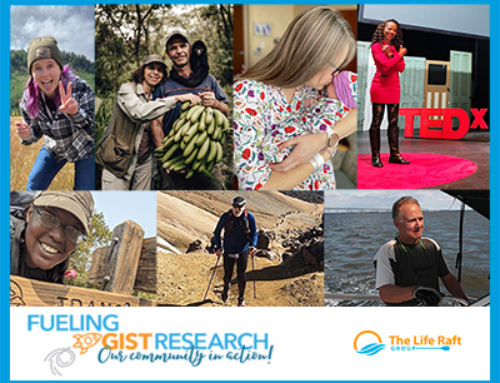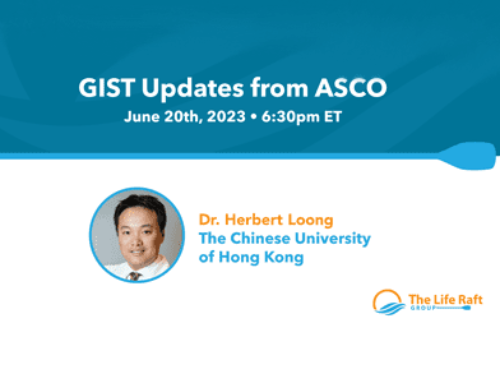My mother, Glenita Mungcal, died from her GIST tumor earlier this year. What we thought was a fluke, a one-time tumor, became a six-year journey of trial, hope, consultations and error – a cycle of surgery, recovery, medication, side- effects, and a recurring tumor. An otherwise healthy and relatively young woman with no family history of cancer came up against a disease that few doctors had heard of, and what existing and available treatments eventually failed.
After her passing, recognizing how alone she was against her disease and how little was known about GIST made me determined that her last act would be to push forward the research, which has yet to identify a cure. This could be a bold and important act, and something that my mother could still do concretely.
In Montreal, Quebec, Canada, she died in the same hospital where she gave life—where she gave birth to twin daughters as a single mother—and so her delivery date, our birth date, was a natural deadline for our goal: to identify 100 donors by May 8 in both the US and Canada.
We were very fortunate to be able to direct funds towards research via the LRG in both countries. I was at a unique vantage point to be fundraising between both countries and organizations. I was humbled to witness the great work LRG US already does in international and collaborative research, advocacy, and trainings, and the “We Are the Cure Campaign” made it simple for our family and community to make contact and contribute to the effort. Our experience in Canada was different, as I quickly learned that few research efforts dedicated to GIST existed within LRG Canada or anywhere else in the country. Yet LRG Canada heard our family’s wish to support research, and was willing to receive our donations accordingly.
And thus, with a meaningful deadline and much love and solidarity, we reached our goal of 100 individual donors to both LRG organizations, with contributions as far away as the UK, Germany and Thailand. Thanks to the funds raised by my mother through her family and community, LRG Canada has begun to support research, naming a newly created (hopefully annual) research position in her honor, Glenita Mungcal Memorial GIST Research Studentship, and will soon disseminate the Request for Applications. Through LRG US’ innovative GIST Collaborative Tissue Bank, researchers will be able to study and learn from her tissue samples and the particular variant of GIST that she had.
My mother’s story is not one of Breast Cancer or Lung Cancer, the cancers that attract major funding and research, but a story of a rare cancer (which increasingly make up a greater proportion of all cancer cases today). While this left treatment options, specialists and foundations frighteningly limited, at the same time we were able to be in direct contact with and support the relatively small and nimble organizations of the LRG, and, on one hand, support their powerful, collaborative consortium of international research labs, and on the other, stimulate the Canadian medical research community in a small way.
I work at the United Nations Population Fund, where we work for the realization of health, human rights and dignity for all. While non-communicable diseases are on the global public health research and advocacy agenda, GIST itself is not. The cross becomes the patients’ and the families’ to bear. Public health needs dedicated talent, advocates and funding. But what will bring researchers to that critical point – to a cure? Does GIST need a place on the global public health agenda? Is that what propels cancer research to make strides forward?




